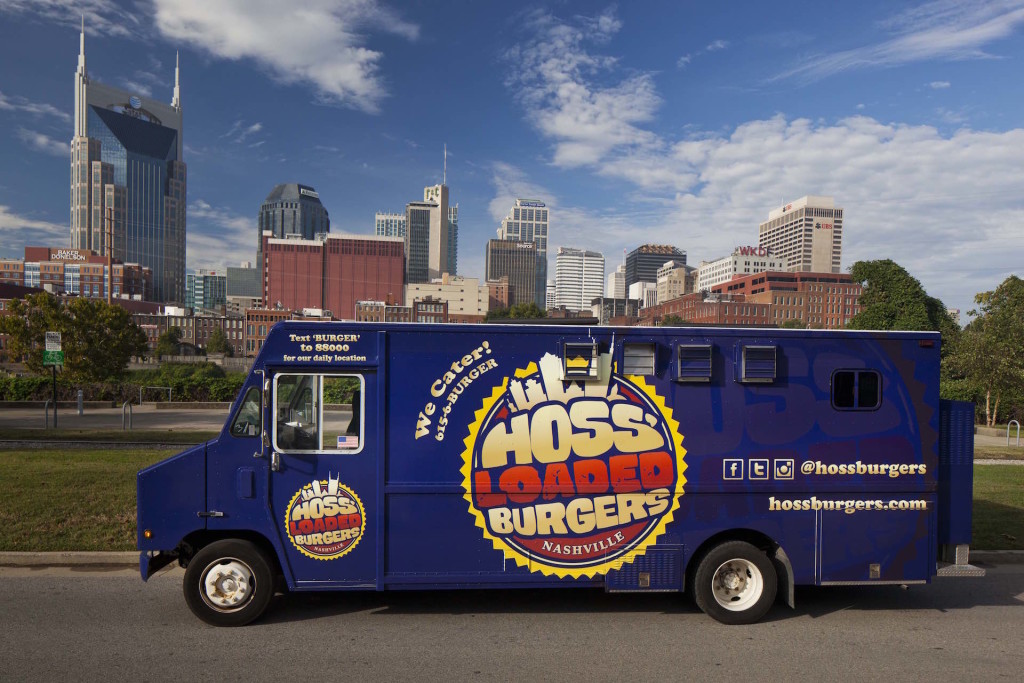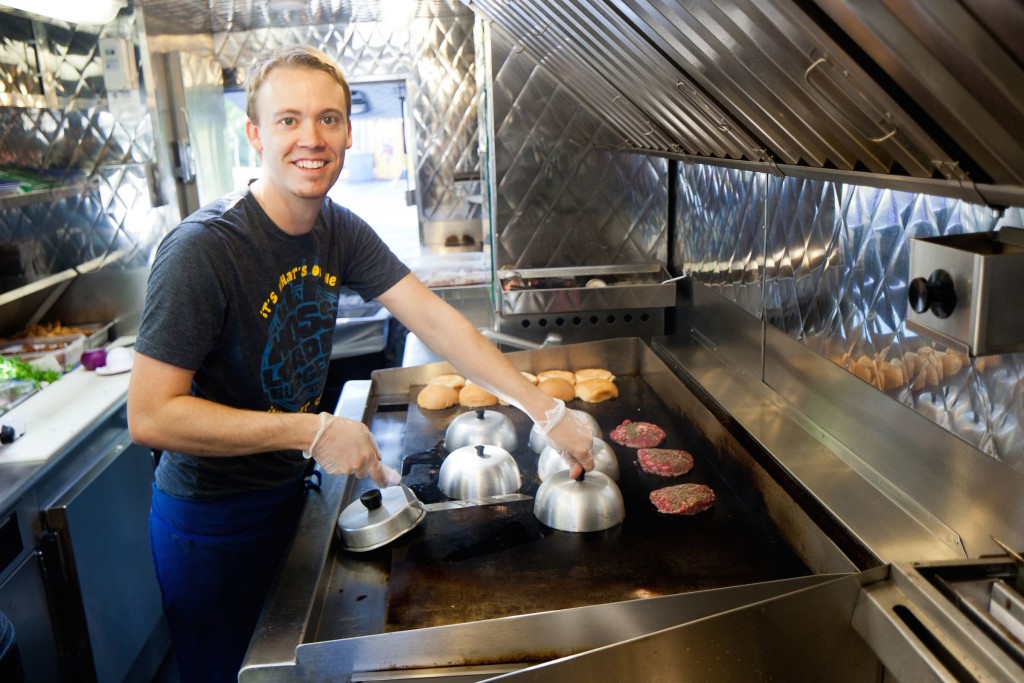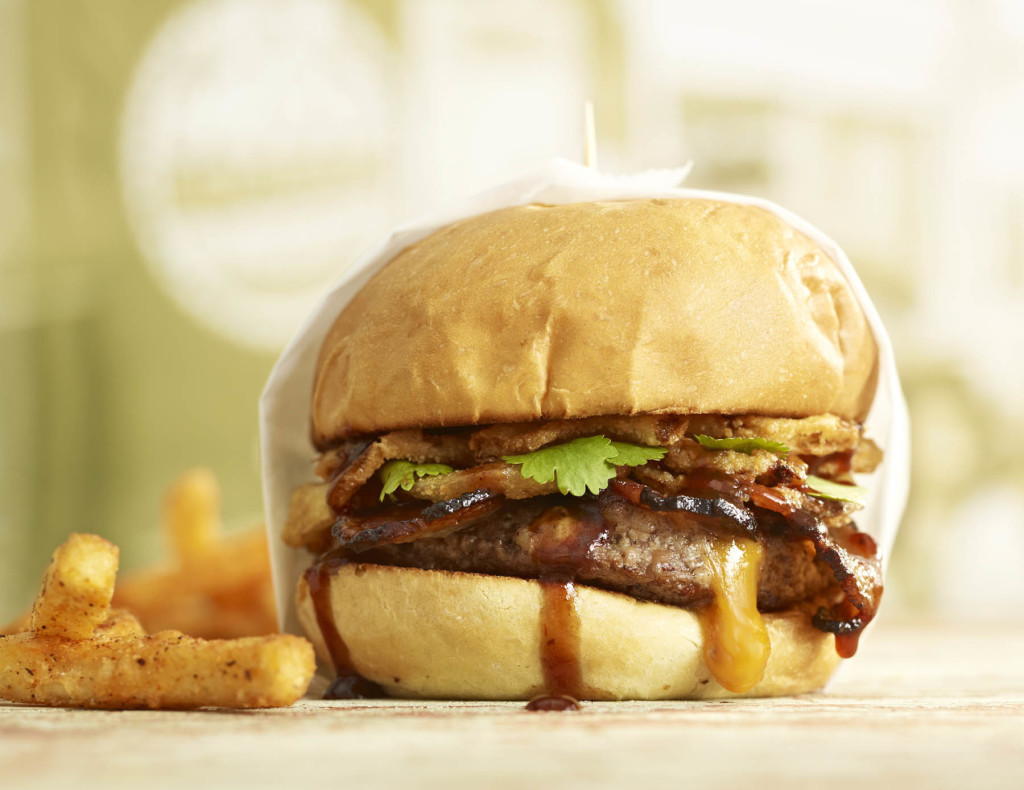There’s no doubt about it: Food trucks are having a food moment (or year – or decade – do we really want it to end?). We once saw food trucks as a place you could get hot dogs and pretzels on the side of a city street in desperate times. However, they are now competing with some of the best restaurants in town. Nashville, with its booming restaurant scene, also has an extensive food truck scene. I got to speak with Dallas Shaw, the President of the Nashville Food Truck Association and owner of the amazing food truck,
Nashville, with its booming restaurant scene, also has an extensive food truck scene. I got to speak with Dallas Shaw, the President of the Nashville Food Truck Association and owner of the amazing food truck, Hoss’ Loaded Burgers, (you have to check ’em out if you haven’t already), to see what it was really like to run a food truck.

Photo courtesy of Kyle Dreier Photography
Why start a food truck?
That was the first question I asked when I got on the phone with Dallas because I was curious – why a food truck versus a restaurant. After working for AT&T in business sales (yes, in the batman building for Nashville natives), he decided he wanted to own his own business and had always wanted to join the culinary industry. He decided on starting a food truck instead of a restaurant for a few simple reasons.
First, it was less expensive. Although he informed me that food trucks operate under the same conditions as a restaurant, with the same health codes and surprise inspections, they require less staff and have much cheaper rent. After all, they only need to buy a truck.
On top of that, Dallas explained that he was able to build a very specific menu and brand image. Dallas began building his business plan in April 2011, which was during a time when food trucks were not as popular. He was only the fifth one to open in Nashville, but by August, he was in full operation. Now he has two trucks and quite a following in Nashville.
So, why burgers?
Much to my surprise Dallas answered because at the time, there weren’t that many burger places in town, and no one was stuffing their burgers with cheese (again, if you haven’t tried them, you need to put this on your bucket list). Additionally, he could create great combinations without having gone to professional culinary school. Lesson: there’s hope to go into the culinary industry no matter what your degree says!

Photo courtesy of Kyle Dreier Photography
What does a typical week look like?
Dallas says that he has to plan his event schedule several weeks in advance to give his distributors (like Porter Road Butcher and Charpier’s Bakery) to have enough time to plan for his delivery needs. Planning ahead also helps to make sure he has enough staff scheduled for each truck. They are prepping by 9am, serving from 11am-1pm, and cleanup happens until 3pm. After that, Dallas spends time answering emails and scheduling events. Food trucks do both private and public functions, so look out for the next food truck festival in town.
What is the relationship between competing food trucks?
Since a main part of business is picking public locations, I wanted to know if animosity existed. I had this image of two food trucks racing down West End to be the first at Centennial Park on a sunny Saturday. Dallas informed me, however, that because of the NFTA and the legitimacy it creates, there is actually a great sense of community and camaraderie.
For instance, if one truck can’t do an event, the owner will pass it along to another food truck. Members of the NFTA realize that working together presents a better food truck industry to the public, who in turn are more willing to support the industry as a whole.
What is the biggest challenge?
Dallas says that the biggest challenge for food trucks is during the winter when the average revenue-per-event decreases. As to be expected, people are not going to wait in line outside when it’s cold, so sales can drop by as much as 50%. This means trucks have to account for this projected loss during the busy season (spring, summer, and fall).
In addition to that, the truck brand and cuisine has to be unique enough to get people to stand and wait in line, and building that brand can be very challenging now that food trucks are increasing in popularity. Social media is a great (and free!) way to advertise and inform customers of upcoming locations. As Dallas said, “people eat with their eyes,” so social media cannot be overlooked in the process. For instance, Hoss’ Loaded Burgers has a Twitter account (@hossburgers) and a Facebook page as well as texting ‘burger’ 88000 for daily locations, that makes it easy to keep customers updated. There is an education process, which is something else the Association helps new trucks with.

Photo courtesy of Kyle Dreier Photography
I learned a ton from talking with Dallas and it definitely makes me appreciate the food truck industry more and more. Next time you’re around town enjoying this beautiful weather we’ve been having, maybe chose a food truck location for lunch. You not only get a great meal, but you get to spend all your time outside soaking in some Vitamin D.


